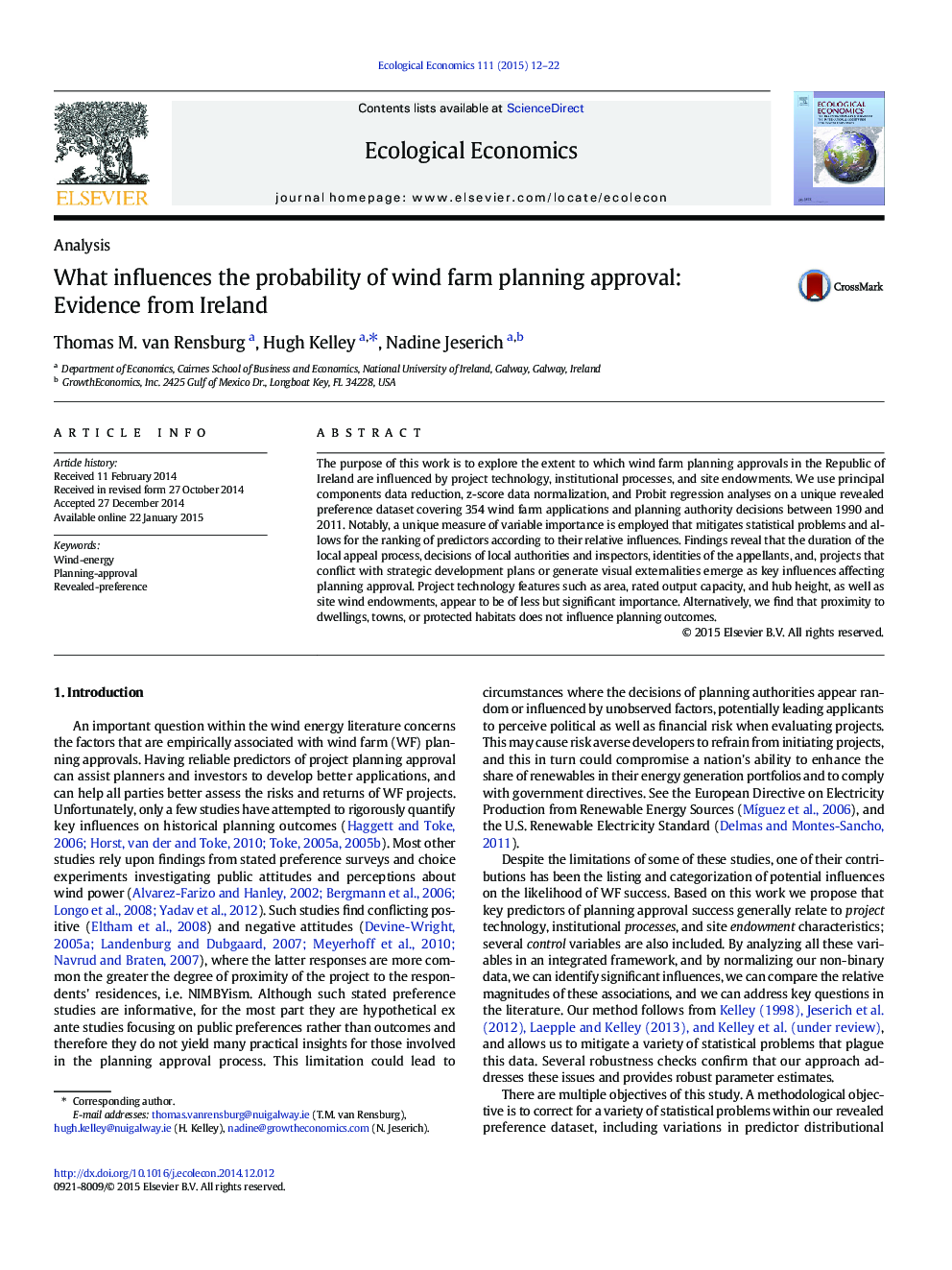| Article ID | Journal | Published Year | Pages | File Type |
|---|---|---|---|---|
| 5049486 | Ecological Economics | 2015 | 11 Pages |
â¢We investigate wind farm planning approvals in the Republic of Ireland.â¢We find that local decisions, process durations, and appellant identities matter.â¢Project technology and visual or strategic development objections matter less.â¢Proximity to dwellings, towns or protected habitats does not matter.
The purpose of this work is to explore the extent to which wind farm planning approvals in the Republic of Ireland are influenced by project technology, institutional processes, and site endowments. We use principal components data reduction, z-score data normalization, and Probit regression analyses on a unique revealed preference dataset covering 354 wind farm applications and planning authority decisions between 1990 and 2011. Notably, a unique measure of variable importance is employed that mitigates statistical problems and allows for the ranking of predictors according to their relative influences. Findings reveal that the duration of the local appeal process, decisions of local authorities and inspectors, identities of the appellants, and, projects that conflict with strategic development plans or generate visual externalities emerge as key influences affecting planning approval. Project technology features such as area, rated output capacity, and hub height, as well as site wind endowments, appear to be of less but significant importance. Alternatively, we find that proximity to dwellings, towns, or protected habitats does not influence planning outcomes.
